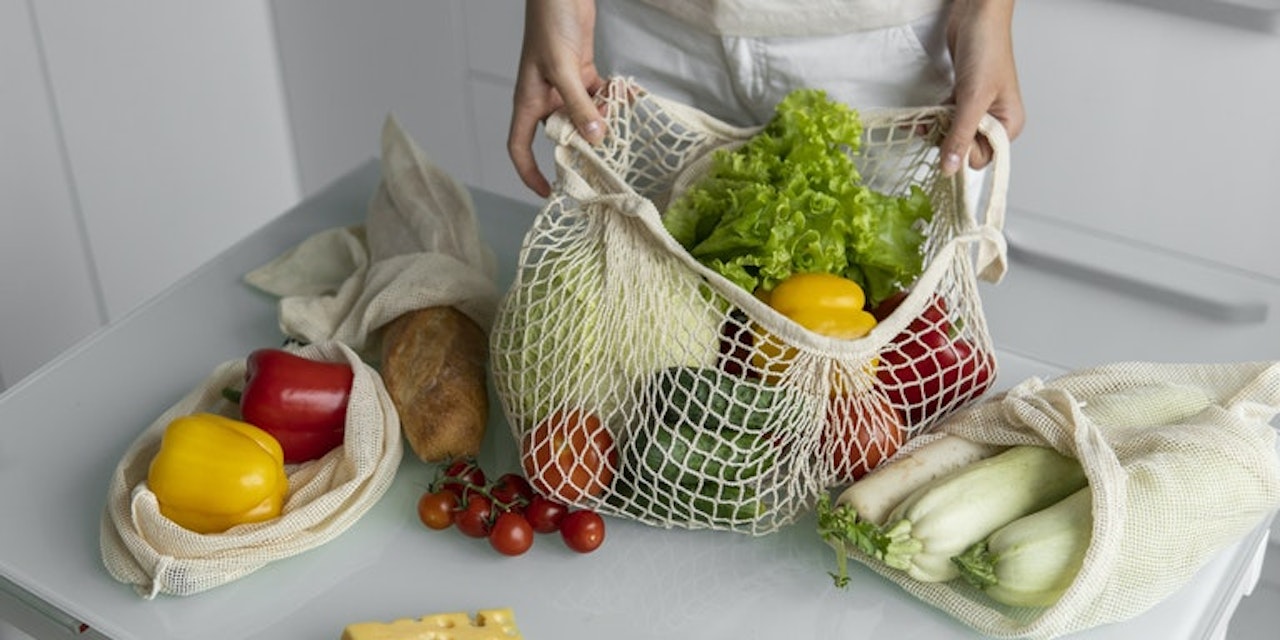How to Increase Your Vegetable Intake
Learn why vegetables are so important, tips for getting the most out of them, and ways to up your intake.
- Published: 4/22/2022
- 4 min. read

- Published: 4/22/2022
- 4 min. read
Nutrition information is ever-evolving, but one thing remains constant - eating plenty of vegetables is beneficial for our health. Vegetables provide fiber and nutrients, yet it can be difficult to prioritize them in our everyday meals. Learn why vegetables are so important, discover tips for getting the most out of them, and ways to up your intake.
Why are vegetables important?
Despite the many diets and eating plans out there, experts agree on one thing: eat plenty of plant-based foods such as fruits and vegetables for better health. People who eat more vegetables have shown a reduced risk for some chronic diseases such as diabetes and heart disease. They also provide vitamins and minerals that are vital for our bodies (1).
Vegetables also help improve our digestive wellness. Vegetables are rich in fiber that feeds healthy gut bacteria. It also helps keep digested food moving and keeps us regular. Vegetables are also lower in calories while being high in nutrients, helping us maintain or reach a healthy weight while keeping our appetites in check.
How many vegetables should you eat?
According to the Centers for Disease Control and Prevention (CDC), only 1 in 10 adults meet the fruit and vegetable recommendations. It depends on your age and sex, but adults should eat at least 1 ½ cups to 2 cups per day of fruit and 2 to 3 cups per day of vegetables, as a part of an overall healthy eating plan (2). A serving of vegetables is about 1 cup of raw or cooked vegetables or 2 cups of raw leafy salad greens (1).
Are all vegetables healthy?
Fresh, frozen, and canned vegetables can all count toward your daily intake. Whether they are fresh, frozen, or canned - they are all rich in nutrients and dietary fiber.
When buying canned vegetables, aim for low or no-sodium versions. Fried or breaded vegetables can have extra calories and fat, as well as those with added oil or sauces. Check the label and make sure it doesn’t have extra sugar, high amounts of added sodium, or saturated fat. Some vegetables are more starchy than others, such as corn, potatoes, squash, and pumpkin. Not to say that these shouldn’t be eaten, but rather it's important to include a variety of vegetables in your diet.
Vegetable variety
A variety of vegetables not only keeps our taste-buds stimulated and our appetites healthy, but it also offers a variety of nutrients to protect against chronic disease. Different types and colors of vegetables contain different nutrients; not one single vegetable contains all the nutrients we need. Having variety has also been suggested to increase our total vegetable intake, meaning variety encourages us to eat more of these healthy guys (3).
How to eat more vegetables
Even though we know something is good for us, it can be difficult to practice it. Check out these tips for increasing your intake of vegetables.
Stock up
Keep your kitchen stocked with vegetables. Always keep canned vegetables on hand, such as tomatoes that can be added to sauces. Fill the freezer with frozen vegetables to be added to a simple dish such as a stir-fry. As a sustainable-friendly tip: freeze fresh vegetables that you don’t use so they can be turned into soup!
Add color to meals
It’s true that we sometimes eat with our eyes. When a meal is full of bright colors and lots of textures, it's much more appealing. Try adding bright orange squash or dark green leafy greens to a meal. Top with some microgreens or fresh herbs. Make your meal look like a rainbow of natural colors, and aim to make half of your plate be vegetables.
Switch-up snacks
Quick, processed snack foods such as chips can add quite a bit of calories, sodium, and fat - and they won’t make you full. Swap those chips for some crunchy vegetables like cucumber, carrots, or bell peppers. Dip them in some healthy yogurt sauce or homemade hummus.
Get sneaky
Lifesum’s chef, Julia, knows how to sneak in vegetables, even when dealing with a picky eater kid. She adds grated or chopped vegetables such as zucchini, carrots, and tomato to dishes like lasagna, pasta, rice dishes, and sauces. She also loves to use her extra vegetable scraps to bulk up a savory soup.
Veg-up breakfast
Some people claim that breakfast is the most important meal of the day. It's also one of the meals that we have the most control over since we typically eat it at home. So, before you leave in the morning, fill your breakfast with some vegetables by serving your eggs over spinach, stuffing an omelet with favorite vegetables such as onion or pepper, or adding some greens to your smoothie.
Want more vegetable-packed recipes? Download the Lifesum app!
All of the content and media on Lifesum is created and published for information purposes only. It is not intended to be used as a substitute for medical advice or treatment. Users should always consult with a doctor or other health care professional for medical advice.
3 references (hide)
All of the content and media on Lifesum is created and published for information purposes only. It is not intended to be used as a substitute for medical advice or treatment. Users should always consult with a doctor or other health care professional for medical advice. If you have or think you are at risk of developing an eating disorder, do not use the Lifesum app and seek immediate medical help.